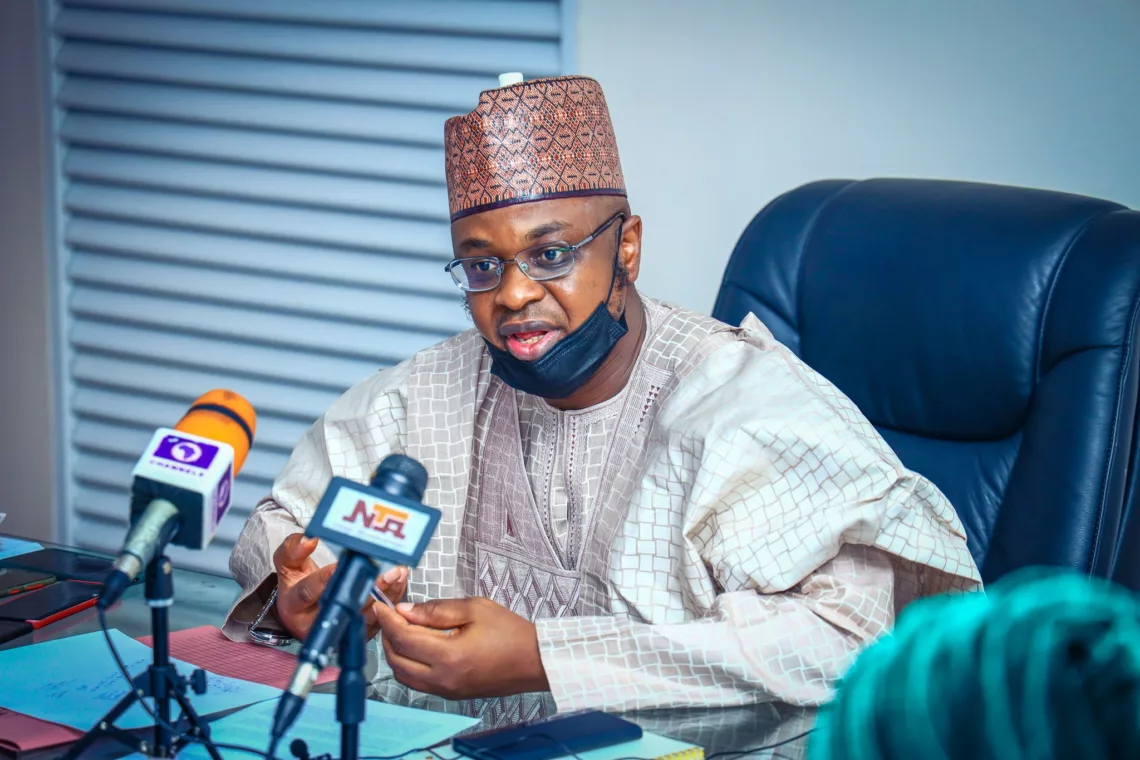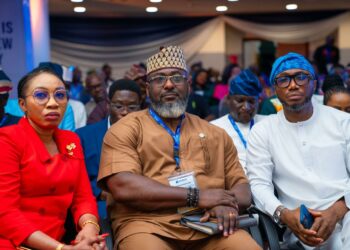The Nigerian government has engaged stakeholders in the digital economy sector to equip the Nigerian higher institutions and the Micro Small and Medium Enterprises (MSMEs) with digital knowledge and skills to meet the demands of the global market.
This was the focus of a book launched recently in Abuja by the minister of communications and digital economy, Prof. Isa Ali Ibrahim Pantami, on digital skills development amid efforts by the federal government to improve broadband penetration in Nigerian higher institutions and boost the MSMEs.
The book, authored by the minister, is titled: “Skills Rather Than Just Degrees,” and it was the culmination of the minister’s drive to help equip the Nigerian higher institutions of learning and the MSMEs with digital innovation to make the Nigerian youth entrepreneur less dependent on degree certificates.
The book was one of other important development items that were unveiled in Abuja with the others being the launch of the broadband infrastructure for higher institutions of learning; the broadband infrastructure for MSMEs and distribution of 6,000 e-pad tablets to institutions of higher learning.
Build the digital capacity of the youth to meet an increasing demands of the global market has become necessary judging by the key role higher education and MSMEs play in the development of the country, which was why the government developed the National Digital Economy Policy and Strategy (NDEPS) for a digital Nigeria unveiled by President Muhammadu Buhari on 28 November 2019.
The government as part of measures to implement the NDEPs also initiated the Nigerian National Broadband Plan 2020-2025, which pillar number two speaks on broadband penetration.
According to Minister Pantami, “Our MSMEs in Nigeria are so far up to 39. 3 million according to SMEDAN. They contributed 46.7 per cent to the GDP in 2020 and by implication almost half of our GDP is from MSME. When it comes to all the businesses we have in Nigeria, 96.7 per cent of our entire businesses in Nigeria are under MSMES. So, any efforts to develop our economy without bringing them into the equation, success is absolutely difficult to attain.
“Today all over the world there is no way we can promote our education, there is no way we can promote commercial activities without broadband.”
He noted that in the Phase 1 of the project, 18 higher intuitions, three in each geo-political zone, have been selected to be provided unlimited access to the internet. 20 markets, 3 from each zone, were also selected in addition to the Wuse Market in Abuja and a market in Lagos.
He added that the federal government approved over N16 billion to provide broadband penetration to these higher institutions of learning and for the markets to support MSMEs, which the Nigerian Communications Commission (NCC) has the task of implementing.
He said in this phase 1, each university will benefit from the broadband infrastructure to the tune of around N400 million, the same with the markets.
Also speaking at the event, the executive vice chairman of the NCC, Prof Garba Umar Danbatta, said the interventions were ambitious, adding that the commission is committed to implementing the various projects and various policies regarding broadband infrastructure in a manner that is ubiquitous.
He promised to make available ICT equipment that will allow access to these services, saying, “Access and connectivity have indeed emerged as foundations for future growth as well as the foundation for economic transformation of our society.”
In his remarks the director general of the National Information Technology Development Agency (NITDA) Kashifu Inuwa, buttressed the necessity of the broadband penetration in growing digital businesses and to allow Nigerians to take advantage of the opportunities.





